Mentorship Selects: 7 tips for pitching your film
With the help and guidance of our guest experts and industry friends, we’ve put together this list of our 7 tips to keep in mind when you are pitching your film or project.
Practice, practice, practice.
Pitching is like a performance. If you’re prepared, you will feel and appear more relaxed.
Don’t repeat everything that is in your trailer.
Use every opportunity to share new information about your project.
Accept the feedback and any criticism you get.
Don’t waste time trying to argue; say thank you and hold back defensiveness.
Match your presentation to the tone of your film.
If it is a serious topic, reflect that in your voice. If it if it is light match that.
Let the images speak for themselves.
Explain the compelling story, not the style. It’s hard to explain style and tone.
Do your research.
Know who you are speaking with and familiarize yourself with their interests and passion issues. Take notes so that when they follow up with you, you can show growth.
Know the landscape.
If you pitch something that sounds like something a distributer has already done, immediately distinguish it. Be humble; don’t say “my film is better;” say that your film “builds on these others because…”
Mentorship Selects: Community screenings as a tool for engagement and impact
Caitlin Boyle of Film Sprout joined us to talk about how she sees community screenings as a vehicle for social change. She used her work on Diana Whitten’s film Vessel, a Chicken & Egg Pictures grantee and member of our Reel Reproductive Justice cohort, as a case study of how screenings can activate communities on an issue; in this case, abortion access.
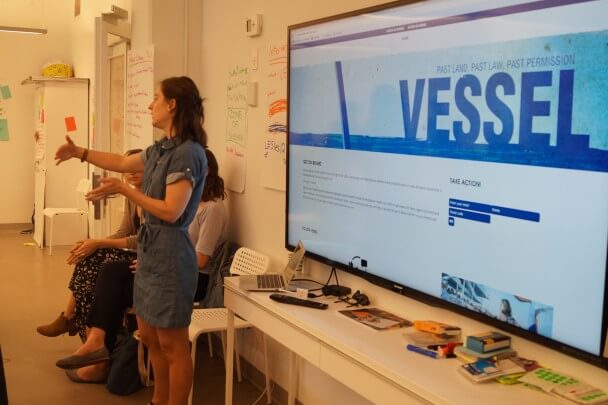
Here are her strategies for using community screenings to create engagement around your film:
The filmmaker and partners should set goals for what each screening should accomplish.
In some places, Vessel screenings collected ticket fees to fund abortion access, while in areas with limited or no abortion access, bringing the film for free was paramount.
Use the calendar to give the campaign an arc.
For the Vessel screenings, Caitlin utilized the Roe v. Wade anniversary and International Women’s Day to plan special events and incentivise screenings during those days.
Align metaphors in movie with engagement campaign.
For the Vessel screenings, the engagement campaign used metaphors like “going into uncharted waters” to market the events.
Think outside the fee.
Not every group can pay screening fees but you can barter free screenings for translations into other languages and retitling or subtitles, which will help the film reach more places.
Make sure engagement happens offline as well as online.
There was a large audience for Vessel in pro-choice 60-80 year olds who might not be on facebook or using email. Use digital platforms, but remember to make calls to reach your audience.
Survey screening hosts to get feedback, metrics and understand impact.
Send your survey a few weeks after and keep it short, about 15 questions.
Mentorship Selects: Are you my audience? Connecting your film with new communities
Sara Kiener, co-founder of Film Presence and audience engagement expert, begins her outreach campaigns with one essential question: Why are you making this film?
Once you can identify the reasons you are making the film and why it matters, she says, you can can find your audience from there.
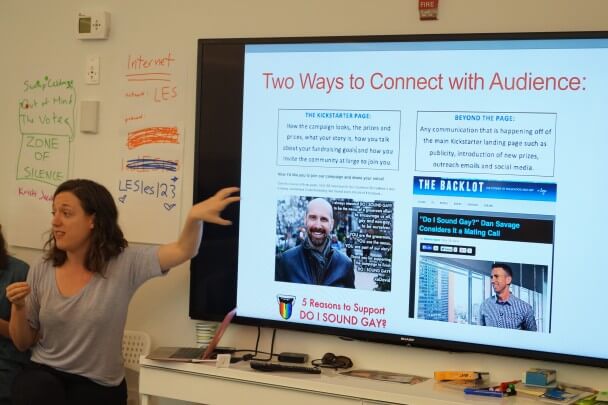
Here are her suggestions for creatively connecting with new audiences:
Don’t limit yourself to two or three audience groups, when you could go after twenty.
It’s not always easy to predict which groups will be interested in the film, so it’s best to cast a wide net when reaching out to partners. For example, while working on the outreach campaign for Do I Sound Gay?, she connected with anti-bullying organizations, fans of David Sedaris and Dan Savage (both men are featured in the film), This American Life listeners who are familiar with Sedaris from the radio program, and speech therapists interested in the topic of voice, and many more organizations and individuals who could link the film to new audiences.
When you first reach out, don’t ask for money right away.
Start with building a relationship and see how they might be able to help you. An organization might be interested in sharing your posts on social media or sending information about your film around in their circles.
Get personal on social media!
Show pictures from the process of your film being made. Put a quote on top of a picture to make an easy to share post about your film. Ask celebrities who care about the issues in your film to share posts or pictures of themselves in connection to the film.
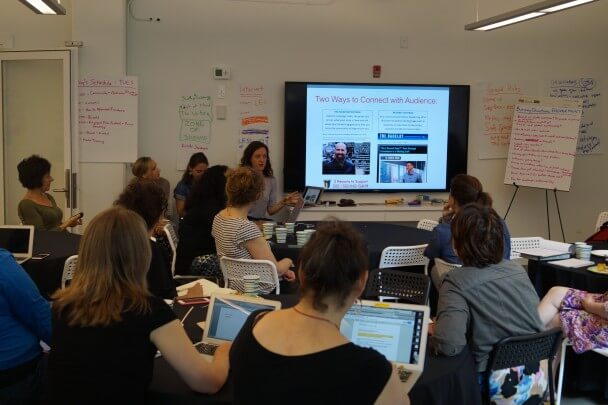
Chicken & Egg Pictures grantees head west for SFIFF
Democrats (directed by Camilla Nielsson) and Dreamcatcher (Kim Longinotto) are headed to the 58th edition of the San Francisco International Film Festival, which kicked off on April 23 and runs through May 7.
The festival, presented by the San Francisco Film Society, is the longest-running film festival in North America.
Longinotto will accept the Golden Gate Persistence of Vision Award on Saturday, May 2 and will participate in an onstage conversation following a screening of Dreamcatcher. Dreamcatcher tells the story of Brenda Myers-Powell, a former prostitute, who helps women and girls break the cycle of sexual abuse and exploitation. The film had its world premiere at the 2015 Sundance Film Festival, where Longinotto was recognized with the World Cinema Documentary Directing Prize.
The film premiered on Showtime on March 27, 2015.
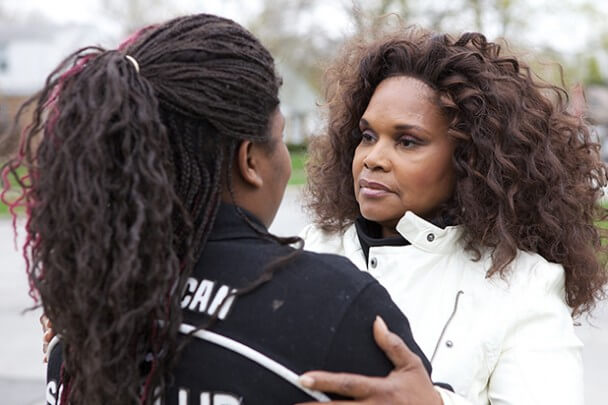
Democrats will have its first of three screenings on Monday, May 4 at the Pacific Film Archive Theater. The film recently had its world premiere at the 2015 Tribeca Film Festival, winning the prize for Best Documentary Feature. Democrats follows two politicians from rival parties as they are assigned to a bipartisan committee tasked with transitioning Zimbabwe from an authoritarian government to a democratic one.
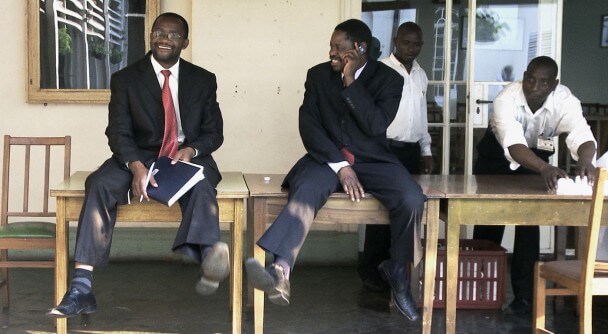
American Revolutionary wins 2014 Peabody Award
Congratulations to director Grace Lee on winning a Peabody for American Revolutionary: The Evolution of Grace Lee Boggs. The Peabody Awards recognize compelling and meaningful storytelling in electronic media and aim to honor stories that matter.
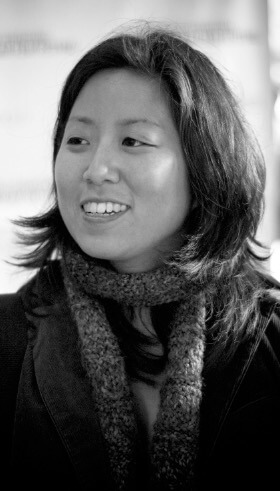
American Revolutionary: The Evolution of Grace Lee Boggs is the electrifying story of Grace Lee Boggs, 99, a Chinese American activist and philosopher in Detroit with a thick FBI file and a surprising vision of what an American revolution can be. Rooted for 75 years in the labor, civil rights and Black Power movements, she challenges a new generation to throw off old assumptions, think creatively and redefine revolution for our times. The kinetic documentary film traces her evolving revolution in a radically changing America.
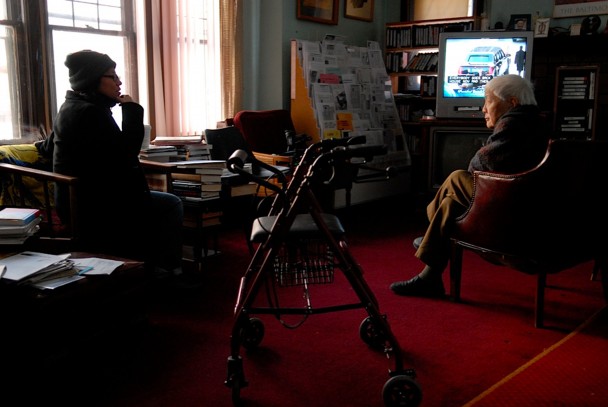
Democrats wins Best Documentary Feature at 2015 Tribeca Film Festival
Congratulations to Chicken & Egg Pictures grantee Camilla Nielsson on winning the top documentary prize at the 2015 Tribeca Film Festival for her film Democrats.

Democrats provides an inside look into the creation of Zimbabwe’s new constitution and the often turbulent road from dictatorship to democracy. The Movement for Democratic Change (MDC) party believes that Zimbabeweans are ready for a democratic system with peaceful un-rigged elections and a constitution written with input from the people. Meanwhile, Robert Mugabe of the ZANU-PF party has been serving as Zimbabwe’s president continuously since 1987.
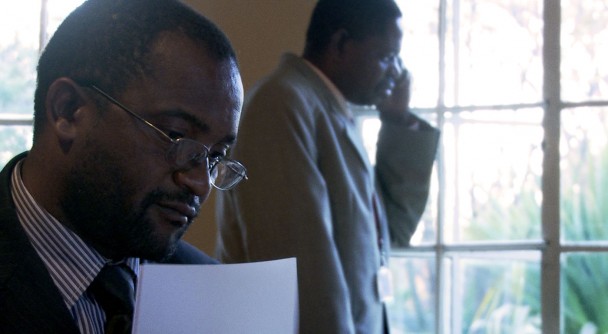
Nielsson follows representatives from each party, Paul Mangwana from ZANU-PF and Douglas Mwonzora of MDC, as they travel the country holding meetings in cities and villages for citizens to offer their ideas for the country’s constitution. Tensions grow when both parties sit down to draft one constitution they can both agree to sign.
Chicken & Egg Pictures announces 2015 Open Call for submissions
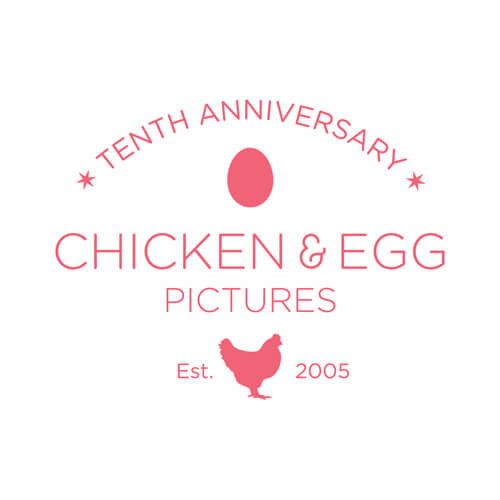 We are excited to announce the Chicken & Egg Pictures 2015 Open Call. Since 2005, Chicken & Egg Pictures has awarded almost $4 million in grants and 5,200 hours of mentorship to over 180 films. We are interested in films that tackle human rights, social justice, and environmental issues in a nuanced, original, and compelling way. We look for new voices, powerful stories, and filmmakers who are committed to working in tandem with social movements.
We are excited to announce the Chicken & Egg Pictures 2015 Open Call. Since 2005, Chicken & Egg Pictures has awarded almost $4 million in grants and 5,200 hours of mentorship to over 180 films. We are interested in films that tackle human rights, social justice, and environmental issues in a nuanced, original, and compelling way. We look for new voices, powerful stories, and filmmakers who are committed to working in tandem with social movements.
This year’s Open Call marks the launch of a new program: Chicken & Egg Pictures’ Accelerator Lab for first and second-time filmmakers. To determine your eligibility to apply, please see our Guidelines & Criteria, as well as our Frequently Asked Questions. The Accelerator Lab is focused on identifying and supporting a diverse group of women nonfiction directors who are first and second-time filmmakers, with the aim of helping them break into the documentary film world, keep on track within the industry’s pipeline, build toward sustainable and successful careers, and tell the most powerful and impactful stories they can. These priorities apply to this 2015 Open Call only.
Applications will be accepted beginning Monday, May 11, 2015. There is one deadline for the 2015 Open Call: Tuesday, June 10, 2015, 5:00 PM EDT. The application fee is $35. All applicants will be notified by late November 2015.
